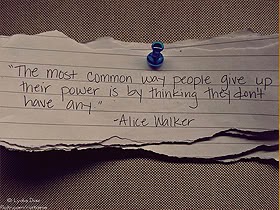Governments govern … which means they exercise power.
James Madison wrote, “The essence of Government is power; and power, lodged as it must be in human hands, will ever be liable to abuse.”
Fear of an overly powerful government was a basic principle of the Founders. They firmly believed liberty could not exist with unrestrained government. Many modern Americans find this belief odd or quaint. After all, a powerful government is needed to right all the wrongs in this world. And there are so many wrongs. Certainly benevolent rule is preferable to wrongs perpetuated on innocent people. Except all-powerful government has been the norm throughout history … and people have been duped, subjugated, robbed, imprisoned, and even murdered by governments.
James Madison wrote, “The essence of Government is power; and power, lodged as it must be in human hands, will ever be liable to abuse.”
Fear of an overly powerful government was a basic principle of the Founders. They firmly believed liberty could not exist with unrestrained government. Many modern Americans find this belief odd or quaint. After all, a powerful government is needed to right all the wrongs in this world. And there are so many wrongs. Certainly benevolent rule is preferable to wrongs perpetuated on innocent people. Except all-powerful government has been the norm throughout history … and people have been duped, subjugated, robbed, imprisoned, and even murdered by governments.
The Founders weren’t paranoid; they came by their fear of power
through personal experience and their study of history. They believed governments
oppress and liberty depended on decentralized authority and potent
restraints on the abuse of power.
To prevent the government from becoming overly powerful, the
Founders used a number of techniques:
- Enumerated powers
- Three branches of government with power balanced between them
- Each branch was given checks on the exercise of power by the other branches
- A federal system with the states acting as a check on the national system
- Different terms of office for elected and appointed officials
- Limited taxing authority (Superseded by the 16th Amendment)
- A list of things the government could not do ... commonly called the Bill of Rights



















.jpg)








